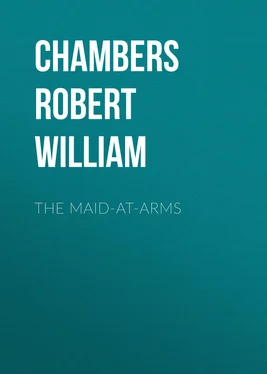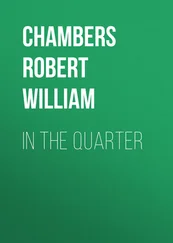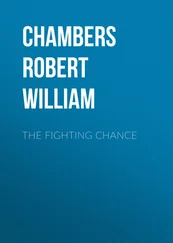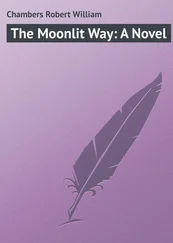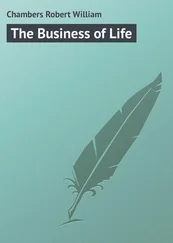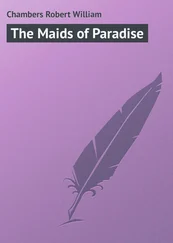Robert Chambers - The Maid-At-Arms
Здесь есть возможность читать онлайн «Robert Chambers - The Maid-At-Arms» — ознакомительный отрывок электронной книги совершенно бесплатно, а после прочтения отрывка купить полную версию. В некоторых случаях можно слушать аудио, скачать через торрент в формате fb2 и присутствует краткое содержание. Жанр: Альтернативная история, foreign_antique, foreign_prose, Исторические приключения, на английском языке. Описание произведения, (предисловие) а так же отзывы посетителей доступны на портале библиотеки ЛибКат.
- Название:The Maid-At-Arms
- Автор:
- Жанр:
- Год:неизвестен
- ISBN:нет данных
- Рейтинг книги:5 / 5. Голосов: 1
-
Избранное:Добавить в избранное
- Отзывы:
-
Ваша оценка:
- 100
- 1
- 2
- 3
- 4
- 5
The Maid-At-Arms: краткое содержание, описание и аннотация
Предлагаем к чтению аннотацию, описание, краткое содержание или предисловие (зависит от того, что написал сам автор книги «The Maid-At-Arms»). Если вы не нашли необходимую информацию о книге — напишите в комментариях, мы постараемся отыскать её.
The Maid-At-Arms — читать онлайн ознакомительный отрывок
Ниже представлен текст книги, разбитый по страницам. Система сохранения места последней прочитанной страницы, позволяет с удобством читать онлайн бесплатно книгу «The Maid-At-Arms», без необходимости каждый раз заново искать на чём Вы остановились. Поставьте закладку, и сможете в любой момент перейти на страницу, на которой закончили чтение.
Интервал:
Закладка:
Robert W. Chambers
The Maid-At-Arms: A Novel
I
THE ROAD TO VARICKS'
We drew bridle at the cross-roads; he stretched his legs in his stirrups, raised his arms, yawned, and dropped his huge hands upon either thigh with a resounding slap.
"Well, good-bye," he said, gravely, but made no movement to leave me.
"Do we part here?" I asked, sorry to quit my chance acquaintance of the Johnstown highway.
He nodded, yawned again, and removed his round cap of silver-fox fur to scratch his curly head.
"We certainly do part at these cross-roads, if you are bound for Varicks'," he said.
I waited a moment, then thanked him for the pleasant entertainment his company had afforded me, and wished him a safe journey.
"A safe journey?" he repeated, carelessly. "Oh yes, of course; safe journeys are rare enough in these parts. I'm obliged to you for the thought. You are very civil, sir. Good-bye."
Yet neither he nor I gathered bridle to wheel our horses, but sat there in mid-road, looking at each other.
"My name is Mount," he said at length; "let me guess yours. No, sir! don't tell me. Give me three sportsman's guesses; my hunting-knife against the wheat straw you are chewing!"
"With pleasure," I said, amused, "but you could scarcely guess it."
"Your name is Varick?"
I shook my head.
"Butler?"
"No. Look sharp to your knife, friend."
"Oh, then I have guessed it," he said, coolly; "your name is Ormond–and I'm glad of it."
"Why are you glad of it?" I asked, curiously, wondering, too, at his knowledge of me, a stranger.
"You will answer that question for yourself when you meet your kin, the Varicks and Butlers," he said; and the reply had an insolent ring that did not please me, yet I was loath to quarrel with this boyish giant whose amiable company I had found agreeable on my long journey through a land so new to me.
"My friend," I said, "you are blunt."
"Only in speech, sir," he replied, lazily swinging one huge leg over the pommel of his saddle. Sitting at ease in the sunshine, he opened his fringed hunting-shirt to the breeze blowing.
"So you go to the Varicks?" he mused aloud, eyes slowly closing in the sunshine like the brilliant eyes of a basking lynx.
"Do you know the lord of the manor?" I asked.
"Who? The patroon?"
"I mean Sir Lupus Varick."
"Yes; I know him–I know Sir Lupus. We call him the patroon, though he's not of the same litter as the Livingstons, the Cosbys, the Phillipses, Van Rensselaers, and those feudal gentlemen who juggle with the high justice, the middle, and the low–and who will juggle no more."
"Am I mistaken," said I, "in taking you for a Boston man?"
"In one sense you are," he said, opening his eyes. "I was born in Vermont."
"Then you are a rebel?"
"Lord!" he said, laughing, "how you twist our English tongue! 'Tis his Majesty across the waters who rebels at our home-made Congress."
"Is it not dangerous to confess such things to a stranger?" I asked, smiling.
His bright eyes reassured me. "Not to all strangers," he drawled, swinging his free foot over his horse's neck and settling his bulk on the saddle. One big hand fell, as by accident, over the pan of his long rifle. Watching, without seeming to, I saw his forefinger touch the priming, stealthily, and find it dry.
"You are no King's man," he said, calmly.
"Oh, do you take me for a rebel, too?" I demanded.
"No, sir; you are neither the one nor the other–like a tadpole with legs, neither frog nor pollywog. But you will be."
"Which?" I asked, laughing.
"My wisdom cannot draw that veil for you, sir," he said. "You may take your chameleon color from your friends the Varicks and remain gray, or from the Butlers and turn red, or from the Schuylers and turn blue and buff."
"You credit me with little strength of character," I said.
"I credit you with some twenty-odd years and no experience."
"With nothing more?"
"Yes, sir; with sincerity and a Spanish rifle–which you may have need of ere this month of May has melted into June."
I glanced at the beautiful Spanish weapon resting across my pommel.
"What do you know of the Varicks?" I asked, smiling.
"More than do you," he said, "for all that they are your kin. Look at me, sir! Like myself, you wear deer-skin from throat to ankle, and your nose is ever sniffing to windward. But this is a strange wind to you. You see, you smell, but your eyes ask, 'What is it?' You are a woodsman, but a stranger among your own kin. You have never seen a living Varick; you have never even seen a partridge."
"Your wisdom is at fault there," I said, maliciously.
"Have you seen a Varick?"
"No; but the partridge–"
"Pooh! a little creature, like a gray meadow-lark remoulded! You call it partridge, I call it quail. But I speak of the crested thunder–drumming cock that struts all ruffed like a Spanish grandee of ancient times. Wait, sir!" and he pointed to a string of birds' footprints in the dust just ahead. "Tell me what manner of creature left its mark there?"
I leaned from my saddle, scanning the sign carefully, but the bird that made it was a strange bird to me. Still bending from my saddle, I heard his mocking laugh, but did not look up.
"You wear a lynx-skin for a saddle-cloth," he said, "yet that lynx never squalled within a thousand miles of these hills."
"Do you mean to say there are no lynxes here?" I asked.
"Plenty, sir, but their ears bear no black-and-white marks. Pardon, I do not mean to vex you; I read as I run, sir; it is my habit."
"So you have traced me on a back trail for a thousand miles–from habit," I said, not exactly pleased.
"A thousand miles–by your leave."
"Or without it."
"Or without it–a thousand miles, sir, on a back trail, through forests that blossom like gigantic gardens in May with flowers sweeter than our white water-lilies abloom on trees that bear glossy leaves the year round; through thickets that spread great, green, many-fingered hands at you, all adrip with golden jasmine; where pine wood is fat as bacon; where the two oaks shed their leaves, yet are ever in foliage; where the thick, blunt snakes lie in the mud and give no warning when they deal death. So far, sir, I trail you, back to the soil where your baby fingers first dug–soil as white as the snow which you are yet to see for the first time in your life of twenty-three years. A land where there are no hills; a land where the vultures sail all day without flapping their tip-curled wings; where slimy dragon things watch from the water's edge; where Greek slaves sweat at indigo-vats that draw vultures like carrion; where black men, toiling, sing all day on the sea-islands, plucking cotton-blossoms; where monstrous horrors, hornless and legless, wallow out to the sedge and graze like cattle–"
"Man! You picture a hell!" I said, angrily, "while I come from paradise!"
"The outer edges of paradise border on hell," he said. "Wait! Sniff that odor floating."
"It is jasmine!" I muttered, and my throat tightened with a homesick spasm.
"It is the last of the arbutus," he said, dropping his voice to a gentle monotone. "This is New York province, county of Tryon, sir, and yonder bird trilling is not that gray minstrel of the Spanish orange-tree, mocking the jays and the crimson fire-birds which sing 'Peet! peet!' among the china-berries. Do you know the wild partridge-pea of the pine barrens, that scatters its seeds with a faint report when the pods are touched? There is in this land a red bud which has burst thundering into crimson bloom, scattering seeds o' death to the eight winds. And every seed breeds a battle, and every root drinks blood!"
He straightened in his stirrups, blue eyes ablaze, face burning under its heavy mask of tan and dust.
Читать дальшеИнтервал:
Закладка:
Похожие книги на «The Maid-At-Arms»
Представляем Вашему вниманию похожие книги на «The Maid-At-Arms» списком для выбора. Мы отобрали схожую по названию и смыслу литературу в надежде предоставить читателям больше вариантов отыскать новые, интересные, ещё непрочитанные произведения.
Обсуждение, отзывы о книге «The Maid-At-Arms» и просто собственные мнения читателей. Оставьте ваши комментарии, напишите, что Вы думаете о произведении, его смысле или главных героях. Укажите что конкретно понравилось, а что нет, и почему Вы так считаете.
